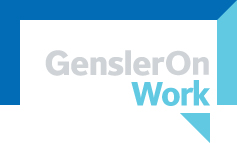Superstorm Sandy and the Lessons of Mobility
For companies with mobile employees, work continues despite empty offices.
It goes without saying that Superstorm Sandy was a devastating natural disaster that will not soon be forgotten in cities on the East Coast. While the focus remains on helping those who need it most, something that cannot be overlooked is the disruption to business continuity experienced by many organizations, which simply wasn’t anticipated by most disaster recovery plans. The scenario goes like this: the building is standing, and the power is even back on, but no one can get here!
As a mobile worker and longtime advocate of workplace mobility, I have been collecting stories from friends, colleagues, and clients about their experiences during and after the storm. I believe their accounts are indicative of a broader phenomenon: a clear divide in the ability to cope between organizations that strictly practice place-based work and those that support mobile work.
The storm rendered bankers, lawyers, business professionals, and other knowledge-based workers idle, simply because their computers and phones sit on desks in buildings they couldn’t access. The backlog of work and stress they’ve returned to is unnerving, and the effects on their businesses have been devastating. It’s a situation with ramifications that will last long after the waters recede.
For those with jobs that enable mobility, work continued on laptops and mobile phones in their apartments, friends’ homes, other companies’ offices, coffee shops, and even shopping mall food courts. It may not have been business as usual, but life went on. For them, it was simply the extension of routine behaviors they have practiced before, for other reasons.
If there’s one workplace strategy lesson we can take away from Sandy, it’s that too many businesses are still overly dependent on their physical workplaces. The problem is that despite all the talk out there about generations, performance, and mobility, many workplaces remain beholden to a culture of presenteeism. I define presenteeism as the expectation that workers be physically present regardless of whether their work could be done equally well, or better, somewhere else. Managers expect, and often demand, that the people they supervise sit in assigned seats during allotted work hours, and base assessments on adherence to these norms. In offices where presenteeism rules, those who favor mobility are perceived as not wanting to do their fair share. This could not be further from the truth.
Working with businesses in all industries, I have seen how enabling mobile work can empower employees and ultimately lead to a more accountable workforce. In my experience, mobile employees feel a greater sense of responsibility to maintain productivity and stay connected than those who have to punch in an out of an office. Presenteeism can foster mistrust and stress, whereas embracing a flexible and mobile approach to work, in which employees are judged on their contributions rather than the time they spent at a desk, increases productivity and pride in work delivered.
But the most important takeaway from Sandy is that the failure to embrace mobile work can leave organizations vulnerable to disruptions in business continuity. Knowledge workers adept at mobile working are less likely to suffer productivity losses when natural disasters, personal situations, and other unforeseeable circumstances occur.
Sandy was an extreme case of productivity lost from lack of mobility, but many smaller examples occur every day, all over the world. The bottom line is that in a 24/7 global business cycle, companies cannot afford to expose themselves to the losses that result from breaks in continuity, large or small. And given that the tools to prevent such breaks from occurring in the first place are the same tools that support modern mobile working, there’s really no excuse to wait any longer to get on board.
 |
Justin Mardex is a strategy director in Gensler’s New York office. He helps leading companies redefine the workplace experience to support modern, mobile working. Part business consultant, and part maker of places, Justin’s favorite thing is when smart strategy and thoughtful design converge. Contact him at justin_mardex@gensler.com. |

 Justin Mardex
Justin Mardex

Reader Comments (6)
Gail
This is a topic and trend we're living and seeing as a priority to our design partners and clients.